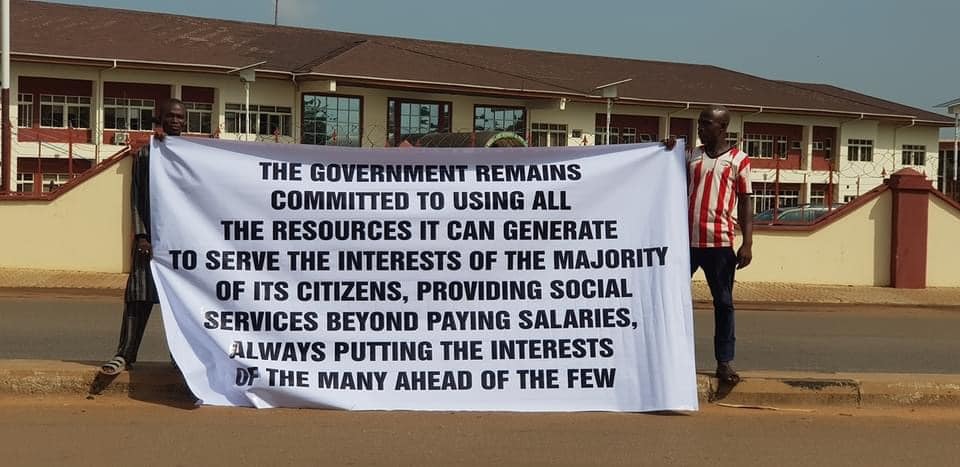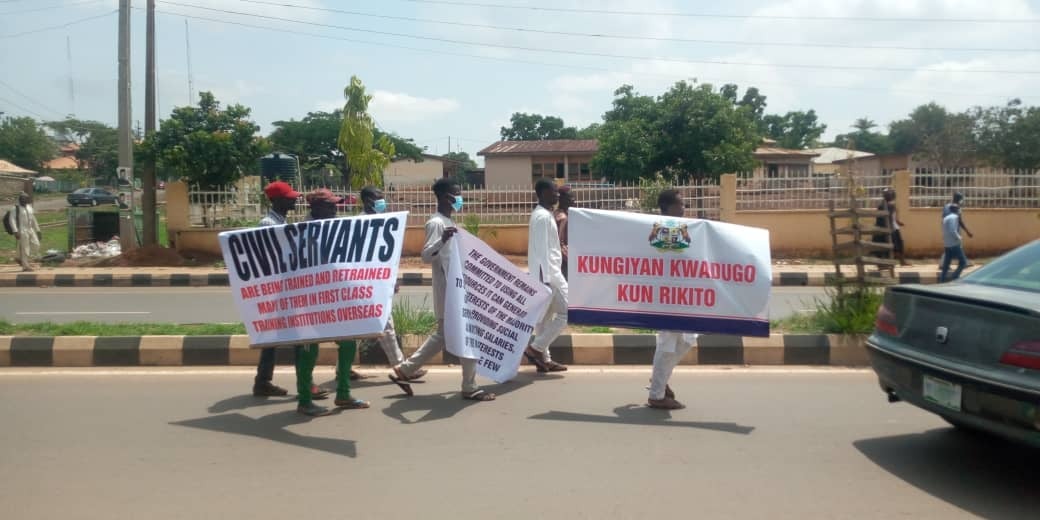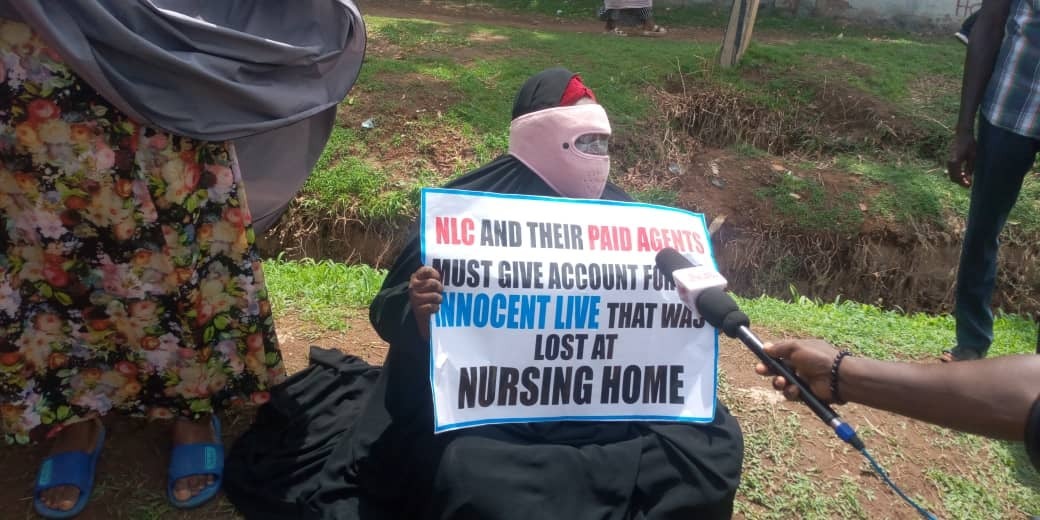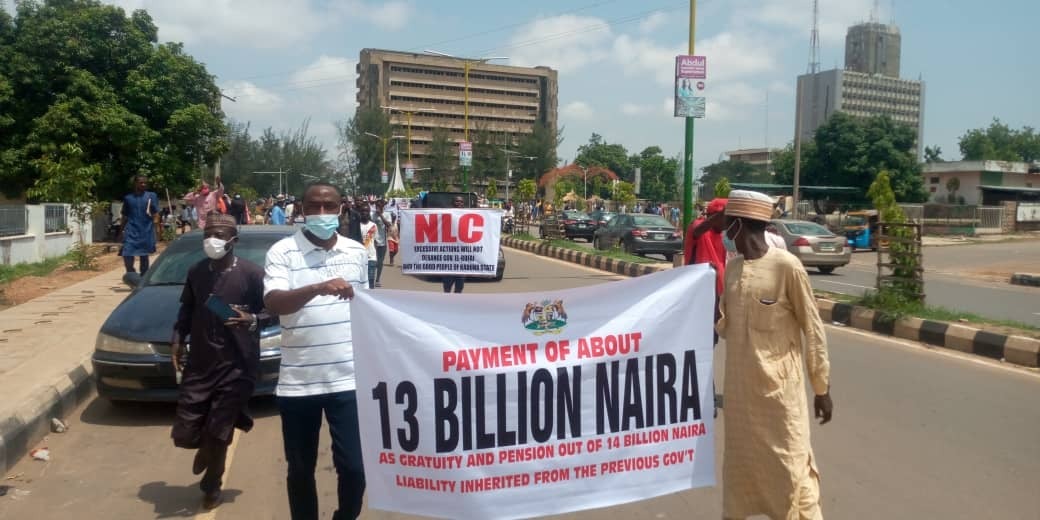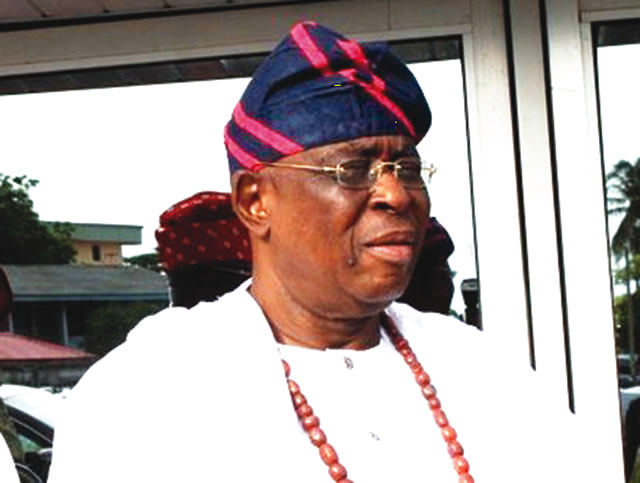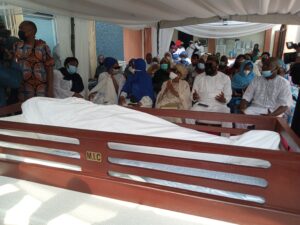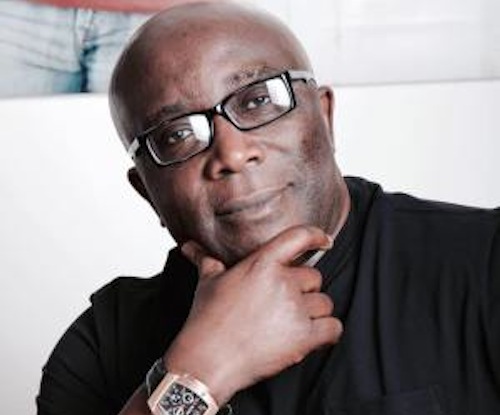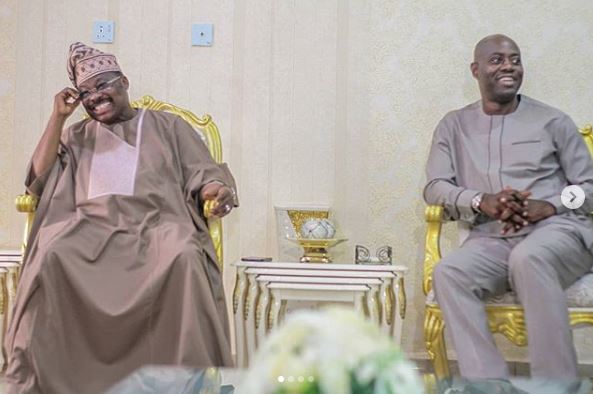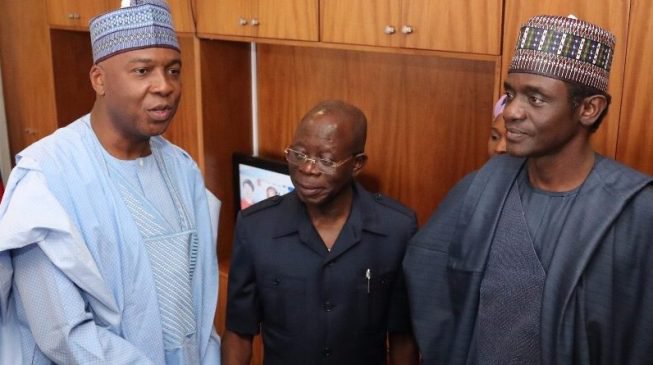The Presidency on Saturday released detailed achievements of President Muhammau Buhari’s three-year-old administration.
This is in commemoration of the country’s annual Democracy Day celebrations scheduled for May 29.
Recall that President Buhari was elected into office under the platform of All Progressives Congress (APC) after defeating then incumbent President Goodluck Jonathan of the Peoples Democratic Party (PDP).
He was sworn into office on May 29, 2015. In his inaugural speech, the president stated that his administration will focus on the economy, fight against corruption, and provision of security.
See details below:
ECONOMY
The presidency says the Nigerian economy is back and is on the path of growth after the recession of 2016-17.
It said the Buhari administration’s priority sectors of agriculture and solid minerals maintained consistent growth throughout the recession.
It said inflation has fallen for the fifteenth consecutive month while the nation’s external reserves are at their highest levels in five years, currently double the size of October 2016.
“The new FX Window introduced by the CBN in April 2017 now sees an average of $1 billion in weekly turnover, and has attracted about 45 billion dollars in inflows in its first year, signalling rising investor confidence in Nigeria
“Nigeria’s Stock Market ended 2017 as one of the best-performing in the world, with returns of about 40 percent,” it said.
It also said five million new taxpayers were added to the tax base since 2016, as part of efforts to diversify government revenue.
Also, tax revenue increased to N1.17 trillion in the first quarter 2018, a 51 per cent increase on the first quarter 2017 figure.
The government said N 12.7 trillion was spent on infrastructure in the 2016 and 2017 budgets, “an unprecedented allocation in Nigeria’s recent history.”
Other economic achievements, stated by the presidency, include the revitalisation of 14 moribund blending plants under the Presidential Fertilizer Initiative, and the tripling of revenue to the Federation Account from solid minerals.
It said the revenue tripled from N700 million in 2015 to N2 billion in 2016, and again rose to N3.5 billion in 2017.
The presidency also said its Economic Recovery and Growth Plan (ERGP), which was launched by Mr Buhari in April 2017, has stabilised the macroeconomic environment; achieved agricultural and food security and has also ensured energy efficiency especially in power and petroleum products.
It also said the ERGP has improved transportation infrastructure and industrialisation primarily through the Small and Medium Enterprises (SMEs).
“To fast-track the implementation of the ERGP, the federal government launched the ERGP Focus Labs, as a targeted 6-week intervention (March to April 2018) to unlock medium-scale and large-scale investment projects held back by bureaucratic bottlenecks.
“The just-concluded Phase 1 of the ERGP Focus Labs identified projects worth about $10 billion for fast-tracking, and the bottlenecks holding them back are now being resolved,” the government said.
In the area of monetary, fiscal and trade policies, the document stated that the APC administration created a new Foreign Exchange window for investors and exporters in April 2017 which has helped stabilise the market and increase appetite for Nigerian stocks by foreign portfolio investors.
“The new Window has attracted inflows of more than $45 billion in its first year of operation,” it said.
In the area of debt management, the document reveals that government adopted a strategy that seeks to achieve its goal by replacing Treasury Bills borrowing with lower-cost, longer-term external financing (via Eurobonds and Concessional Loans from China)
“The Buhari Administration inherited N12.1 trillion in debt, with N5.4 trillion annual servicing cost, and had reduced the debt service on this inherited debt to N3.9 trillion by 2016,” it said.
Under the Bond Issuance programme, the government said $7.3 billion was issued in Eurobond in 2017/18, to fund the 2017 Budget as well as to refinance maturing treasury bills and lower the cost of borrowing for the government.
“This debt refinancing strategy is paying off as treasury bill rates have dropped from 16-18% to 10-12% over the last year.
“The oversubscription of our recent Eurobond (the first issuance in 2017 saw orders in excess of US$7.8 billion compared to a pre-issuance target of US$1bn) demonstrates strong market appetite for Nigeria, and shows confidence by the international investment community in Nigeria’s economic reform agenda,” the government said.
Other debt related issues raised in the document include Nigeria’s first Sovereign Sukuk Bond which raised N100 billion used to fund 25 major road projects across the country.
There was also Nigeria’s first ever Diaspora-targeted Eurobond that raised $300 million used to fund part of the 2017 Budget and Africa’s first Sovereign Green Bond Programme that raised N10.69 billion used to fund infrastructure projects that tackle climate change.
Support To State Governments
The Buhari administration also said it has extended more than N1.9 trillion to state governments, to enable them meet their salary and pension obligations, especially in the face of dwindling oil revenues over the last two years.
The support, it said, has come in the form of Budget Support Facility (Total of N606.55 billion extended to the states as of May 2018; in exchange for reforms in budgeting, IGR, debt management, overheads, etc.)
Others are Paris Club refunds, infrastructure loans as well as loan restructuring for facilities with commercial banks.
Other economic related achievements include the Anchor Borrowers Scheme of the Central Bank of Nigeria which, it said, has substantially raised local production of rice in 2016.
It said yields from rice farming improved from 2-3 tonnes per hectare to as high as 5 – 6 tonnes per hectare.
The programme, it said, has also produced a model agricultural collaboration between Lagos and Kebbi States.
“Over N300 billion investments in the rice value chain. Between 2016 and 2018, eight new rice mills have come on-stream; and Nigeria’s paddy production and productivity has doubled compared to 2014 levels
“Nigeria’s milled rice production has increased from 2.5MT to about 4MT, and rice exports from Thailand to Nigeria dropped from 1.23 million MT in 2014 to 23,192 MT as of November 2017,” the document said.
The administration said it has launched a series of funding and capacity development initiatives designed to support small and medium businesses (MSMEs) across the country.
It said the new Development Bank of Nigeria (DBN) has finally taken off, with initial funding of $1.3bn (provided by the World Bank, German Development Bank, the African Development Bank and Agence Française de Development) to provide medium and long-term loans to MSMEs.
The DBN, it said, has already disbursed N5 billion to 20,000 MSMEs, through three microfinance banks.
The government said its Ease of Doing Business reform programme through the Presidential Enabling Business Environment Council (inaugurated by Mr Buhari in August 2016) and the Enabling Business Environment Secretariat (EBES) resulted in Nigeria moving up 24 places on the World Bank’s Ease of Doing Business rankings in 2017, and earning a place on the List of 10 Most Improved Economies.
“The Buhari administration has, since 2017, issued three Executive Orders that positively impact Nigeria’s small business environment,
“They include the Executive Order on Improving Efficiency in the Business Environment, Executive Order on Promoting Local Procurement by Government Agencies and Executive Order on planning and execution of projects, promotion of Nigerian content in contracts and science, engineering and technology.”
The government also said it is “doing more with less” resources.
It said N1.219 trillion was released for capital expenditure in the 2016 budget, and N1.476 trillion so far in the 2017 budget, making a total of N2.7 trillion (about $9 billion) in two years.
“This investment has enabled the resumption of work on several stalled projects — road, rail and power projects — across the country,” it said.
The government said even at a time of low oil prices, Nigeria’s external reserves have doubled since October 2016, from $24 billion to $48 billion.
It said the Sovereign Wealth Fund has seen inflows of $500 million in 2016 and 2017 (the first inflows since the original US$1 billion which the fund kicked off with in 2012).
Infrastructure
The Buhari administration said it has demonstrated a “single-minded commitment: to upgrading and developing Nigeria’s transport, power and health infrastructure.”
It said in May 2018, the federal government launched the Presidential Infrastructure Development Fund (PIDF), under the management of the Nigerian Sovereign Investment Authority.
The PIDF is kicking off with seed funding of $650 million.
It also said the Nigeria Sovereign Investment Authority (NSIA) in March 2018 invested $10 million to establish a “world-class” cancer treatment centre at the Lagos University Teaching Hospital (LUTH), and $5 million each in the Aminu Kano University Teaching Hospital and the Federal Medical Centre, Umuahia, to establish modern diagnostic centres.
The centres, it said, should be completed before the end of 2018.
“In 2014, the federal government invested the following: Transport (N14 billion), Agriculture & Water (N34 billion), Power, Works & Housing (N106 billion). In 2017 those figures jumped to: Transport (N127 billion), Agriculture & Water (N130 billion), Power, Works & Housing (N325 billion).
“Abuja’s Light Rail system has been completed and will go into operation in 2018. The first line to be launched will connect the city centre with the airport, with a link to the Abuja-Kaduna Railway Line.
“The Buhari Administration successfully completed the reconstruction of the Abuja airport runway within the scheduled six-week period (March – April 2017),” the document stated.
Power Sector
In the Power sector, the government said there was more than 2,000MW of additional power generation capacity by the end of 2018.
Some, it said, were via publicly owned plants (Afam Fast Power, 240MW) while others are through private sector investment supported by the federal government (Azura, 450MW).
The government said it launched a N701 billion Payment Assurance Programme designed to resolve the liquidity challenges in the power sector by guaranteeing payments to generating companies and gas suppliers.
It also said there was transmission expansion and rehabilitation programme which has resulted in a 50 per cent expansion in grid capacity since 2015, from 5,000MW to 7,125MW as at December 2017.
It said it also launched the Distribution Expansion Programme (DEP) which was approved by the Federal Executive Council in February 2018 to deliver 2,000MW of unused power capacity to consumers in need.
“Implementation of the DEP has commenced, with the issuance, in May 2018, of a call for tenders for the procurement of distribution substations and electrical equipment,” government said.
Investing In People
The Buhari administration says all four components of the Social Investment Programme (SIP) have now taken off.
“The SIP is the largest and most ambitious social safety net programme in the history of Nigeria, with N140 billion released and more than 9 million direct beneficiaries so far,” it said.
Under the SIP, government said 200,000 N-Power beneficiaries are currently participating and receiving N30,000 in monthly stipends.
It said another 300,000 new enrolments are being processed, to take the number to 500,000 this year.
It said as for the Government Enterprise and Empowerment Programme (GEEP), N15.183 billion has been disbursed in interest-free loans ranging from N50,000 to N350,000 to 303,420 market women, traders, artisans, farmers across all 36 States of the country and the FCT.
It said under the GEEP, 56 per cent of the loans have gone to women.
“In terms of advancing the financial inclusion goals of the Buhari Administration, GEEP has led to the opening of 349,000 new bank accounts/wallets for beneficiaries and intending beneficiaries.
“In November 2017, GEEP was chosen as the pilot programme for the Bill & Melinda Gates Foundation Policy Innovation Unit in Nigeria,” the government said.
The Buhari government also talked about its Home Grown School Feeding Programme (HGSFP).
It said the programme currently feeds a total of 8.2 million pupils in 45,394 public primary schools across 24 states.
The states include Abia, Anambra, Enugu, Ebonyi and Imo (South East); Akwa Ibom, Cross River and Delta (South South); Osun, Oyo, Ondo and Ogun (South West); Benue, Niger and Plateau (North Central); Kaduna, Katsina, Kano, and Zamfara (North West); Bauchi, Taraba, Borno, Gombe and Jigawa (North East).
“Over 80,000 direct jobs have since been created from the School Feeding Programme; with 87,261 cooks currently engaged in the 24 participating states.
“All 36 states of the Federation and the FCT will eventually benefit from the Programme.
“The Health aspect of the programme has seen over 3 million pupils dewormed in six states, the deworming programme is a bi-annual programme aimed at eradicating and reducing the burden of worms,” it said.
Under the Conditional Cash Transfer (CCT), the administration says 297,973 families are benefiting from the CCT Scheme.
